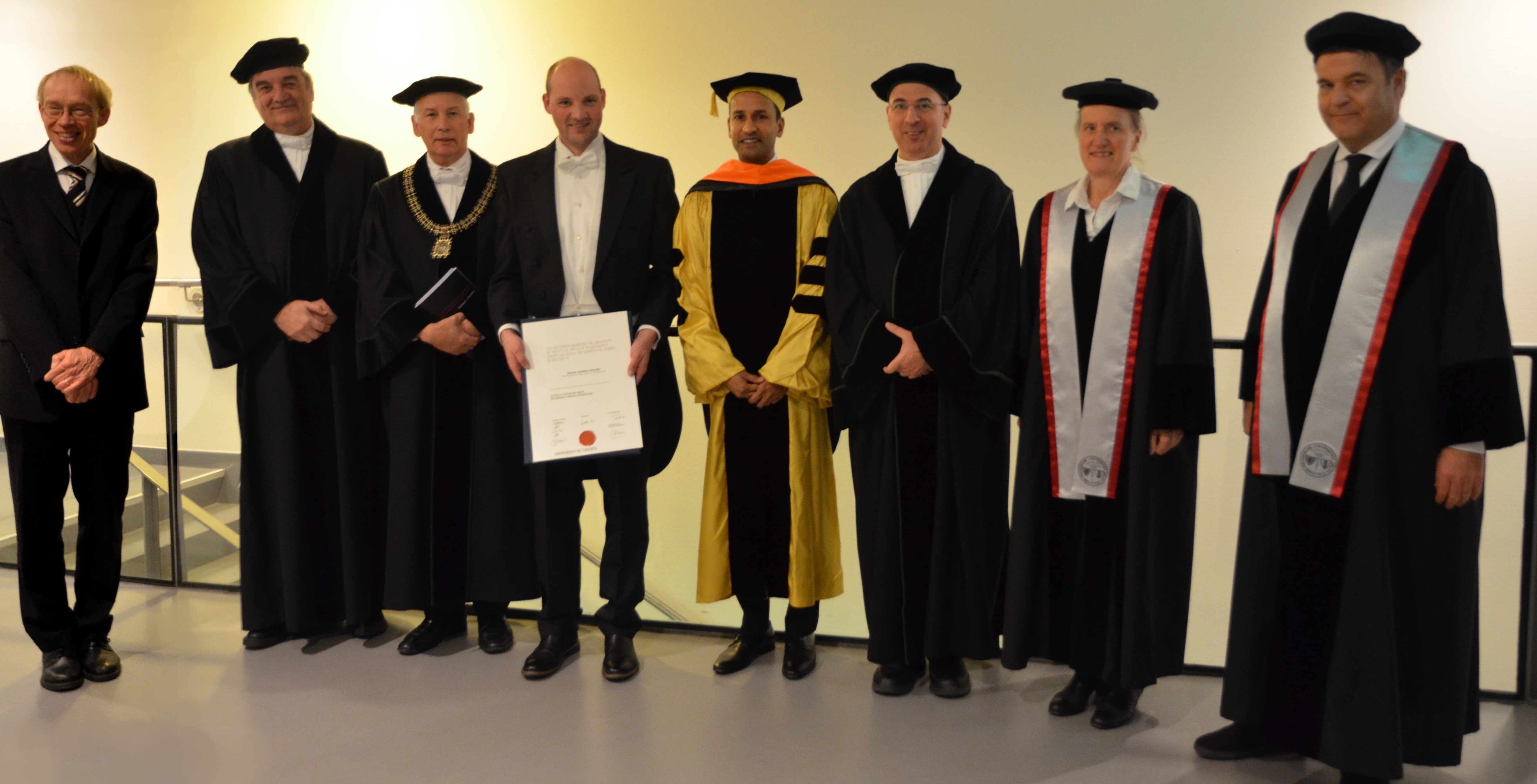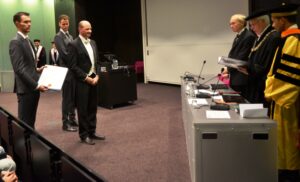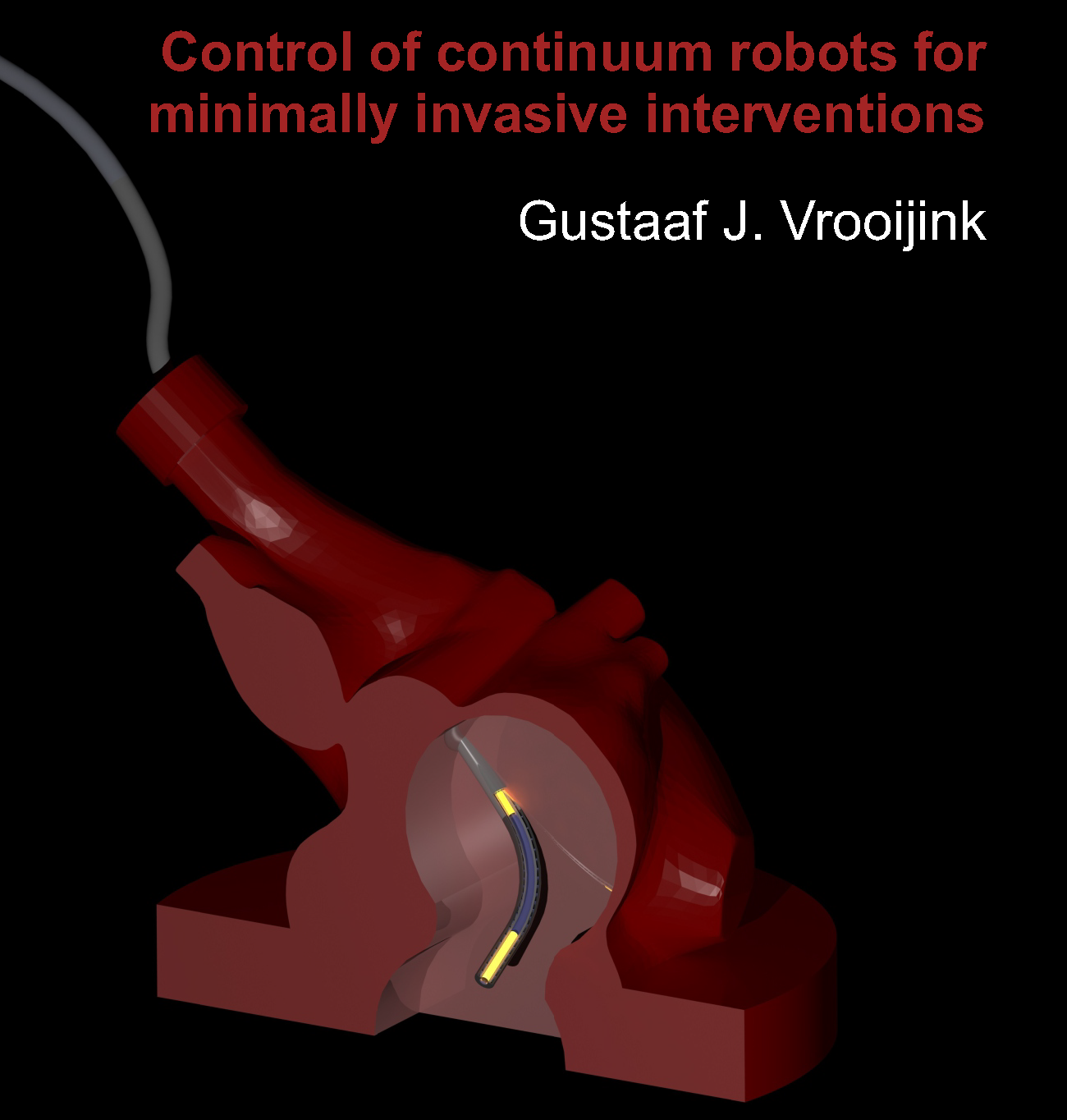
PhD Defense – Gustaaf J. Vrooijink
SRL doctoral candidate defended his thesis
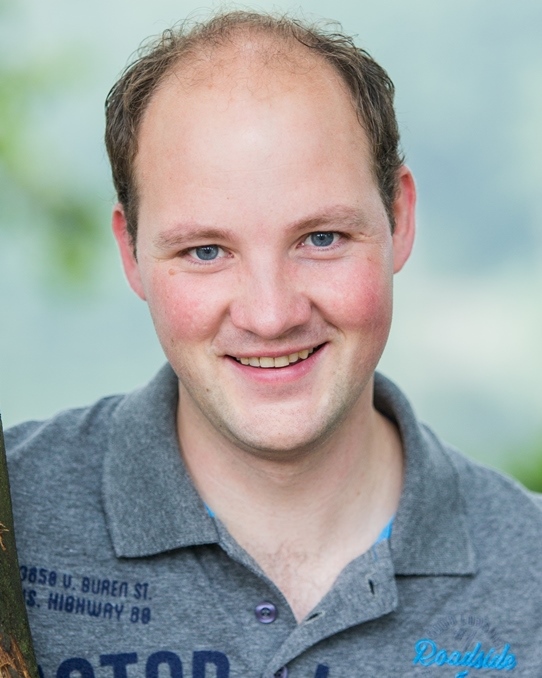 Gustaaf J. Vrooijink defended his doctoral thesis entitled “Control of Continuum Robots for Minimally Invasive Interventions” on Wednesday, 13th November, 2019 at 4:30pm in the Prof. dr. G. Berkhoffzaal room, in the Waaier building at the University of Twente.
Gustaaf J. Vrooijink defended his doctoral thesis entitled “Control of Continuum Robots for Minimally Invasive Interventions” on Wednesday, 13th November, 2019 at 4:30pm in the Prof. dr. G. Berkhoffzaal room, in the Waaier building at the University of Twente.
Guus’s doctoral thesis is available here.
Thesis summary:
In recent times, the role of minimally invasive surgery (MIS) in diagnosis and therapy has significantly increased. The rapid adoption of MIS can be attributed to the considerable benefits offered to patients. This includes reduced patient trauma, less scarring and faster recovery times. Furthermore, the reduced patient trauma enables the treatment of high-risk patients who were initially denied surgery. However, restricted access, reduced visibility and limited dexterity of instruments at the treatment location are among the challenges of MIS. Hence, the demand for new technology such as continuum robots that can assist the clinician during MIS is significant. Potentially, the control of continuum robots such as flexible needles, delivery sheaths and steerable catheters could be used to address challenges associated with MIS.
In this thesis, closed-loop control methods using flexible needles, delivery sheaths and steerable catheters for percutaneous and cardiovascular interventions are developed. The closed-loop control methods are used to accurately position the continuum robot at the treatment location and to provide instrument tip stabilization for tissue motions. Feedback of the continuum robot and target location for closed-loop control is 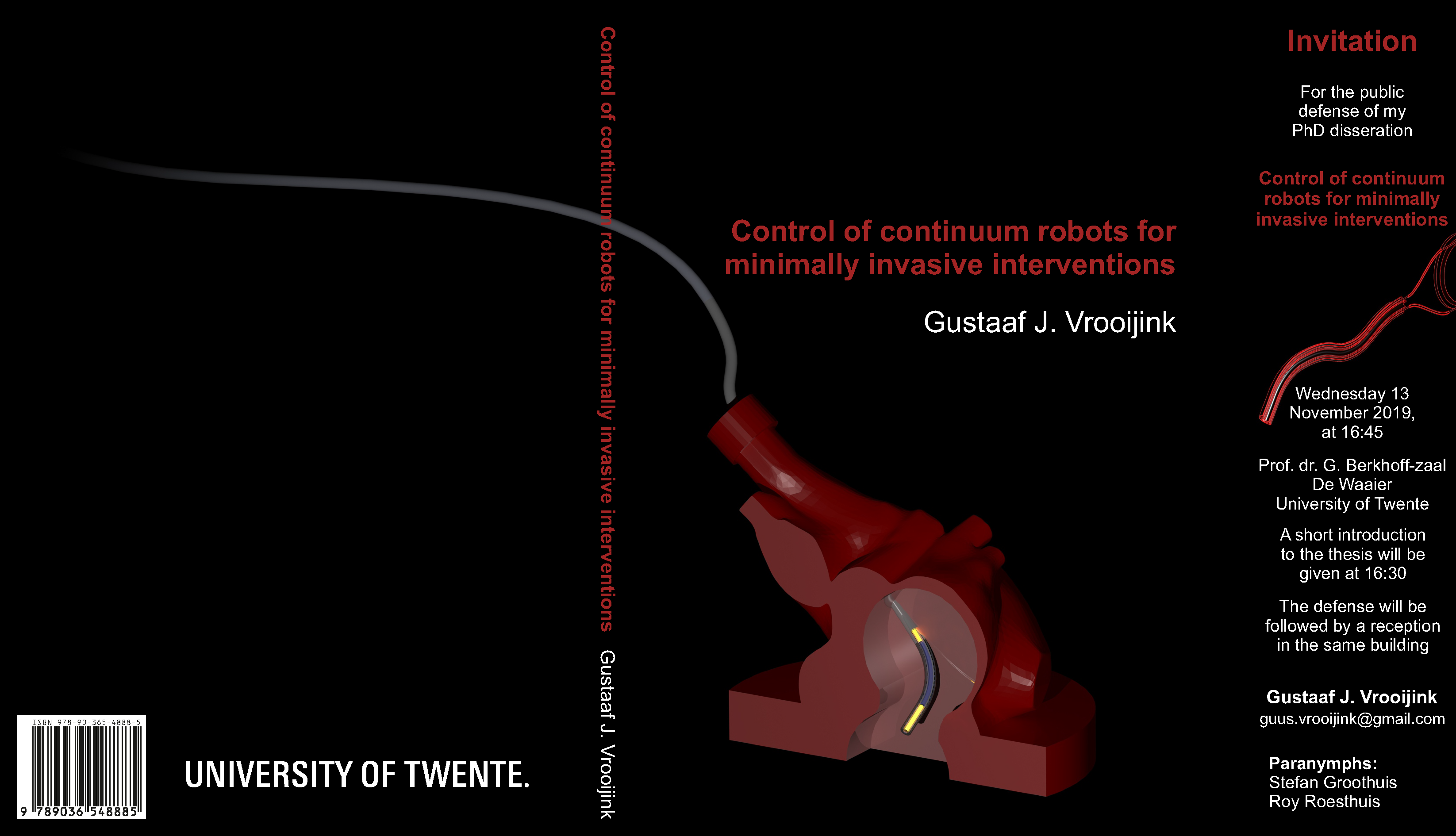 provided by
provided by
ultrasound images and electromagnetic tracking. The closed-loop control methods (aided by path planning) uses continuum robot models for the accurate positioning and stabilization of the instrument tip. Furthermore, the control in
put is provided to actuators and mechanisms in order to steer the continuum robot. In order to evaluate the closed-loop control of continuum robots, an ex
perimental testbed is developed and used to reproduce a clinical environment.
The proposed closed-loop control methods for continuum robots are evaluated in clinically-relevant experiments. The results obtained from experiments showed an improved continuum robot tip positioning compared to clinical practice. In order to avoid sensitive tissue that could be present in surgery, it is demonstrated that constraints integrated in the control method could be used to restrict the instrument motion. Furthermore, stabilization of the continuum robot tip for tissue motions is demonstrated. However, the proposed closed-loop control method for continuum robots could benefit from improvements in feedback, control methods, continuum robot design, and instrument steering mechanisms with actuators. Therefore, with modifications, the proposed methods could be successfully deployed in clinical practice.
Promotor
- Prof. dr. S. Misra (University of Twente/University Medical Center Groningen, The Netherlands)
- Prof. Dr. G.P.M.R. Dewulf (University of Twente, The Netherlands)
- Prof. dr. N. Simaan (Vanderbilt University, USA)
- Prof. dr. if. P. Breedveld (Delft University of Technology, The Netherlands)
- Prof. dr. J. Dankelman (Delft University of Technology, The Netherlands)
- Prof. dr. ir. H.F.J.M. Koopman (University of Twente, The Netherlands)
- Dr. ir. R.G.K.M. Aarts (University of Twente, The Netherlands)

